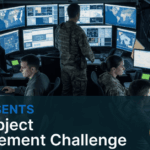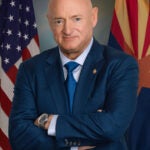
In this monthly column, Defense Daily highlights individuals from across the government, industry and academia whose efforts contribute daily to national defense, from the program managers to the human resource leaders, to the engineers and logistics officers. Mark Mellott is the Executive Vice President of DoD and Veterans Affairs at iTech AG, a technology consulting firm. He has served in the position since February 2022 and has a history of academic leadership for advanced information systems and IT, with knowledge…













